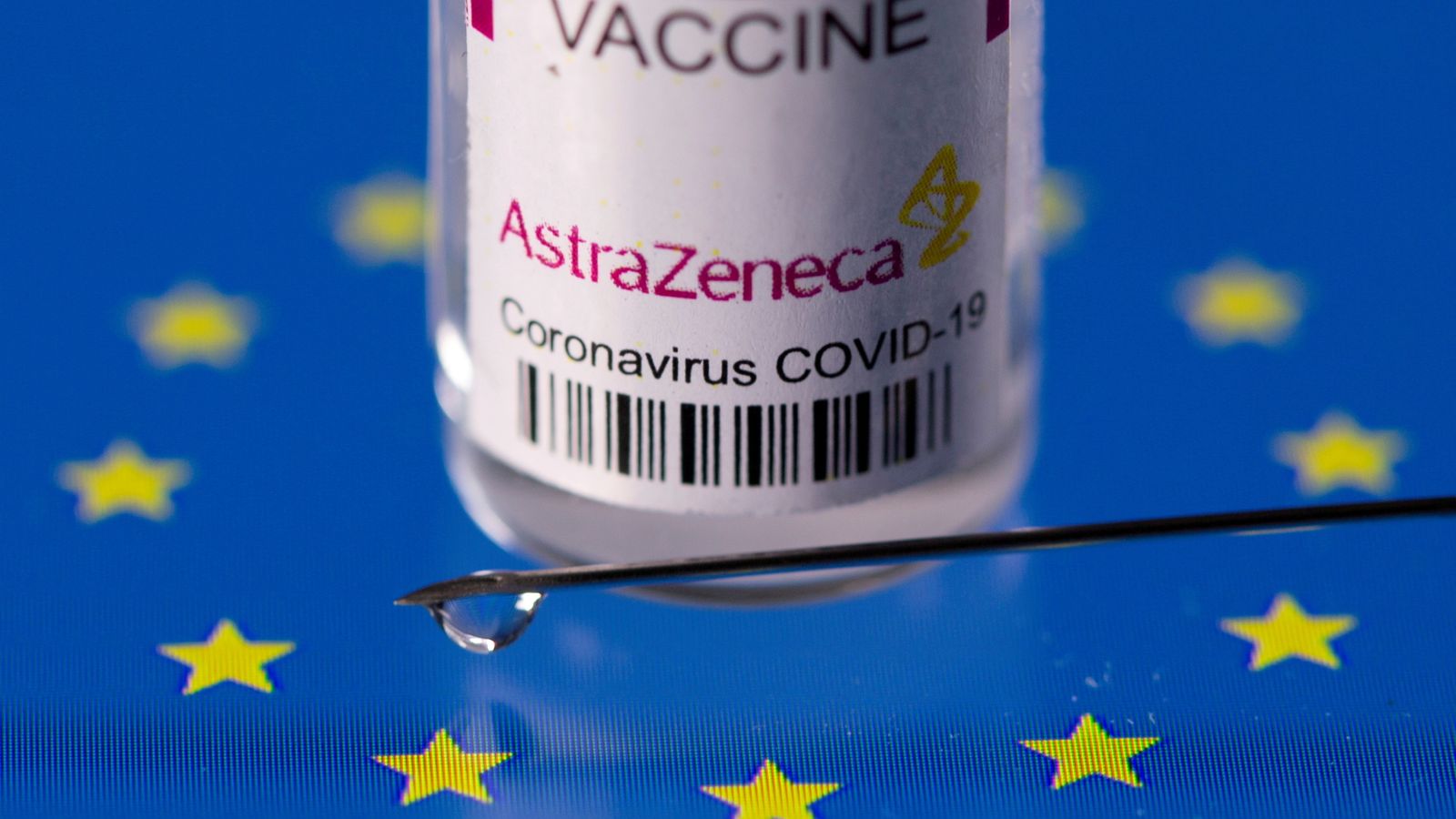AstraZeneca and the EU have both claimed victory in a court ruling over the supply of COVID-19 vaccines.
The two sides have had a rocky relationship over the past few months, with the European Union accusing the vaccine maker of not producing supplies fast enough.
AstraZeneca was contracted to do its best to deliver 300 million doses to the bloc by the end of June, but it had to revise down its target to 100 million doses due to production problems.
Please use Chrome browser for a more accessible video player
A Brussels court rejected an EU request for at least 120 million vaccine doses by the end of this month – something the company has claimed as a win.
Instead, the drug maker said the judge ruled it should deliver only 80.2 million doses by 27 September.
AstraZeneca said it would “substantially exceed” that amount by the end of this month and that the court backed its assertion that the European Commission “has no exclusivity or right of priority over all other contracting parties.”
However, European Commission President Ursula von der Leyen said the ruling supported the EU’s view that AstraZeneca had failed to meet its commitments.
“It is good to see that an independent judge confirms this,” she said.
“This shows that our European vaccination campaign not only delivers for our citizens day by day. It also demonstrates that it was founded on a sound legal basis.”
The supply cuts had meant the EU’s vaccination drive was delayed in the first quarter of this year, when the bloc had relied on AstraZeneca for a large proportion of its shots.
AstraZeneca has now been told by the court to deliver 15 million doses by 26 July, another 20 million by 23 August, and a further 15 million by 27 September.
If the company misses these deadlines it will face a penalty of €10 (£8.57) per dose not delivered, the European Commission said.
Listen and subscribe to The Ian King Business Podcast here
The vaccine maker said other measures the EU had hoped for were dismissed.
“The judgment also acknowledged that the difficulties experienced by AstraZeneca in this unprecedented situation had a substantial impact on the delay,” it said, adding it “looks forward to renewed collaboration” with the European Commission.






















